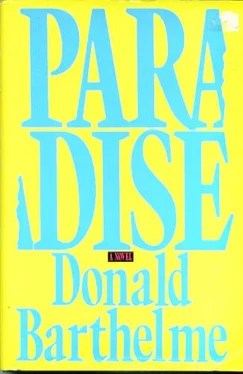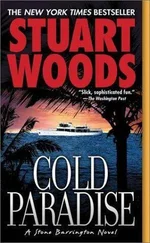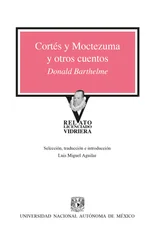“How would we know?”
“There would be little touches, little individual touches —”
“Like what?”
“Well when I fuck a guy, when he’s inside me, I have this little individual thing I do, I don’t know how to describe it, it’s a kind of hooking motion, it, by it I mean the vagina, grabs the penis around the throat, what you might call the throat, at a certain point, a kind of choking, and then it lets go and then it does it again.”
“Well what about it?”
“Well he noticed.”
“Well I have some things I know how to do too.”
“Like what?”
“Well that’s my business isn’t it? I don’t necessarily have to go around explaining my techniques.”
“Well I think we’re putting this thing too much on a technical basis, that’s interesting but it’s not the main thing. The main thing is whether he really cares about us on an individual basis.”
“How do we find out?”
“Maybe we could give him some sort of a test.”
“I don’t think Simon is the kind to respond well to a test. It might make him mad.”
“Well this is not the only place in the world we can live.”
“I know that but how much money do you have?”
“I have a check my grandmother sent for my birthday.”
“How much?”
“Twenty-five dollars.”
“That’ll take us about to the corner.”
Simon was delighted to be fifty-three, lean and aggressive except for his belly which was not lean and aggressive. He was younger than I. M. Pei, younger than Dizzy Gillespie, younger than the Pope. He had more wisdom packed in his little finger than was to be found in the entire Sweets catalog, with its pages of alluring metal moldings and fire-rated expansion joints. He had kept asbestos and asbestos-containing products out of every job he had ever worked on, sometimes at considerable cost. He had a daughter who would come into the kitchen at breakfast and say, “Who’s got the goddamn New York Times?” Sarah did not wake well. He could spell 49,999 words correctly and make a pretty good stab at many of the rest. He had a Bronze Star, courtesy of a clerk-typist in his unit whose gift for writing citations for routinely rotating personnel had been envied even at Corps level. The IRS regarded him as a cash cow, on a small scale, and regularly sent him loving salutations, including, one year, a box of Godiva chocolates. He could speak persuasively in meetings, maintaining a grave and thoughtful countenance and letting all the dumb guys speak first. He had about twice the élan of youth, normal élan plus extra élan derived from raw need and grain spirits. Several of the male members of his family had lived to be fifty-nine or sixty. “Grow or die” was the maxim that most accorded with his experience and when he did not think of himself as a giraffe he thought of himself as a tree, a palm, schematically a skinny curving vertical with a lot of furor at the top. With colored felt pens and a pad of tracing paper he could produce impressive sketches in twenty minutes, which he then had to reconcile with reality and sweat over for forty days, cursing himself for his facility. “What about the cornstalk?” A design prof had told the students that there were no right angles in nature, and Simon had raised the question of the cornstalk. Had he to do it again, thirty years later, he would have raised the question of the telephone pole, a deterioration of sensibility, perhaps. He rushed toward things, normally, his present quietude a parenthesis in a life not unmarked by strife and contestation. Pipe bombs did not bother him so long as they did not blow his face off. The assassination of the Swedish Prime Minister, on the other hand, scarred his brain. He had met Palme once, at a conference on the work of the Greek planner Constantin Doxiodes in Stockholm in 1972, at which Doxiodes had declared himself a criminal because he had put human beings into high-rise buildings. Palme had been a beneficent presence, a short man who wanted everything to go well, wanted the world to succeed in good socialist fashion, gay and optimistic. “The deed of a lunatic,” the Swedish police said, Simon feeling despair for humankind. A friend, a Polish architect who had been at Penn with him, visited him in Philadelphia in 1984 on a grant from the Ford Foundation. Carol had made osso buco and they had talked for hours. “Socialism, finally, doesn’t work,” Ryszard had said. “You get, you know, too many bad guys at the top.” Ryszard’s father had been a deputy in the Polish parliament, a Communist who sat for some years and had then been jailed following a change in the leadership. It was the first time that anyone had said to Simon, with the authority of three decades of involvement, that socialism didn’t work. “You get, at the summit, not the worst but the next-worst.” Simon took Ryszard to the airport, gave him as a going-away present a Tizio lamp, regretted that he saw him so seldom, wished that he lived next door, on Pine Street. Carol, when they were twenty-five and twenty-six, had been a smart-ass, an admirable smart-ass. “I love you but it’s only temporary,” she had said. She was fond of saying to people, “Here’s wishing you a happy and successful first marriage.” Simon could lift refrigerators other people couldn’t lift. He had almost crushed his left hand getting a refrigerator down a set of right-angled stairs for a neighbor. His muscles responded brightly to challenge. Fifty-three, he thought, was not so much worse than twenty-three. All giraffes think this.
“He used a rolled-up newspaper,” Veronica says, “what you’d use on a dog. Only he put his back into it, when I was twelve and thirteen and fourteen. What can I say? Sadistic son-of-a-bitch. If he’d been a drunk I could maybe have forgiven him but he didn’t drink. He was a piano salesman, worked for this piano store downtown. He played pretty well himself. He’d wanted to be a doctor. My mother got rid of him, eventually. Not soon enough.”
Simon thinks of his own large, calm father, still active at seventy-five, playing the market and raising hell on behalf of the ADA. She’s wearing patched jeans (patches at the back of the knee, just under a buttock, on the right thigh) and a dead-black sweater. Blond hair done in cornrows this morning, a copy of Interview in her lap, somebody named Kim Basinger on the cover. He wants to hold her tight, rock her, even — a non-rational impulse, she’s almost as tall as he is.
“Well, it’s a bitch,” he says. This sounds feeble even to him.
“He looked nice in a suit. He had these pretty expensive suits, maybe a dozen suits. He had a lot of shoes, I remember the shoes with shoetrees in them. He gave me a very good camera when I was fifteen, a Mamiyaflex, a twin-lens reflex. I used to take pictures of lizards, lizard-on-branch, lizard-on-brick-wall, lizard looking at camera —”
“And your mother?”
“She was kind of a dishrag, to tell the truth. Then. She pulled her socks up after she got rid of him. She’s still back there, in Denver. She’s a school principal, elementary school. Got a boyfriend, the shop teacher. She thinks she’s doing Lady Chatterley’s Lover.”
She pauses.
“Guess what,” she says.
“What?”
“You’re not a father-figure. That surprise you?”
“No.”
“You’re more like a guy who’s stayed out in the rain too long.”
Does this translate into experienced, tried-and-true, well-tempered? Or pulpy, hanging-in-thin-strips? He pulls at an ear.
“I mean worn, but with a certain character.”
Rust never sleeps, he thinks.
“Well,” he says, “shall we take the children to school?”
“What children?”
“Right.”
“Are you going to have any more children?”
Читать дальше












